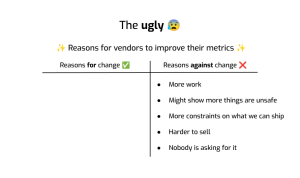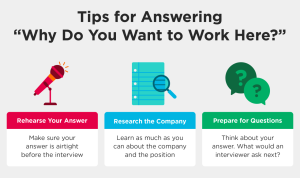Top 10 Dating Apps Dominating the U.S. Play Store This Year highlights the remarkable transformation in the dating landscape brought about by technology. As individuals increasingly turn to digital platforms to forge connections and relationships, a variety of apps have emerged, each offering unique features and user experiences. This analysis delves into the top contenders, examining what makes them so prevalent and effective in the competitive dating market.
The landscape of online dating has evolved significantly over the years, with applications now catering to diverse preferences, lifestyles, and relationship goals. This year, certain dating apps have surged in popularity, not only for their user-friendly interfaces but also for their innovative features that enhance matchmaking capabilities. By exploring these top ten apps, users can gain insights into the current trends shaping the dating scene in the U.S.
In the rapidly evolving landscape of technology, artificial intelligence (AI) has emerged as a transformative force across various sectors. From healthcare to finance, AI applications are reshaping conventional practices and enhancing efficiencies. This article aims to explore the multifaceted implications of AI integration, highlighting its benefits, challenges, and future potential. Introduction to Artificial IntelligenceArtificial Intelligence refers to the simulation of human intelligence processes by computer systems.
These processes include learning (the acquisition of information and rules for using it), reasoning (using rules to reach approximate or definite conclusions), and self-correction. The primary goal of AI is to create systems that can perform tasks that typically require human intelligence, such as visual perception, speech recognition, decision-making, and language translation.AI can be categorized into two main types: narrow AI and general AI.
Narrow AI, also known as weak AI, is designed to perform specific tasks, such as facial recognition or internet searches. In contrast, general AI, or strong AI, would possess the ability to understand, learn, and apply intelligence across a broad range of tasks, akin to human cognitive abilities. While narrow AI has seen substantial advancements and applications, general AI remains a theoretical concept at this point.
The Rise of AI in HealthcareOne of the most promising applications of AI is in the healthcare sector. AI technologies are revolutionizing patient care, diagnosis, and treatment. Machine learning algorithms can analyze vast amounts of medical data to identify patterns and provide insights that would be impossible for human practitioners to discern. For instance, AI systems can assist in diagnosing diseases by analyzing medical images, such as X-rays and MRIs, with accuracy rates that sometimes exceed those of experienced radiologists.Moreover, AI-driven predictive analytics can enhance patient outcomes by identifying at-risk patients and recommending preventive measures.

For example, AI systems can analyze electronic health records (EHRs) to predict patient readmission rates, enabling healthcare providers to implement targeted interventions to reduce these rates.AI is also being used in drug discovery, where it can accelerate the process of developing new medications. Traditional drug discovery can take years and cost billions of dollars, but AI can streamline this process by predicting how different compounds will interact with biological systems.
This capability not only speeds up research but also increases the likelihood of successful drug development. AI in Finance: Transforming the IndustryThe financial sector is another domain where AI is making significant inroads. Financial institutions are leveraging AI to improve decision-making, enhance customer service, and manage risks more effectively. Algorithms can analyze market trends and consumer behavior, providing financial analysts with valuable insights to make informed investment decisions.AI-powered chatbots are becoming increasingly common in customer service roles within banks and financial firms.
These chatbots can handle a myriad of customer inquiries, from simple account questions to complex transaction issues, thereby reducing wait times and improving customer satisfaction. Furthermore, AI systems can employ natural language processing (NLP) to understand and respond to customer queries in real time, mimicking human interaction.Risk management is another area where AI demonstrates its value. Financial institutions can use AI algorithms to detect fraudulent activities by identifying unusual patterns in transaction data.
Machine learning models can continuously learn from new data, making them more effective at identifying emerging fraud schemes compared to traditional methods. Challenges in AI ImplementationDespite the numerous benefits of AI integration, several challenges inhibit its widespread adoption. One significant concern is the issue of data privacy. AI systems rely on vast amounts of data for training, and the collection and use of personal information raise ethical questions.
Ensuring that data is handled responsibly and complies with regulations such as the General Data Protection Regulation (GDPR) is critical for building trust with users.Another challenge is the potential for bias in AI algorithms. If the data used to train AI systems is biased, the resulting models may perpetuate or even exacerbate existing inequalities. For example, biased hiring algorithms may disadvantage certain demographic groups, leading to unfair practices in recruitment.
To mitigate these risks, it is essential for organizations to implement strategies that promote fairness and transparency in AI development.Moreover, the public’s perception of AI technology poses a challenge. There is a growing fear that AI could replace human jobs, leading to unemployment and economic disparities. While AI does have the potential to automate certain tasks, it also creates new job opportunities in AI development, maintenance, and oversight.
Education and training programs must evolve to prepare the workforce for a future where AI plays a central role. The Future of AI: Trends and PredictionsThe future of AI is promising, with several emerging trends that indicate its continued evolution and integration into various sectors. One significant trend is the advent of explainable AI (XAI). As AI systems become more complex, understanding their decision-making processes becomes crucial, especially in high-stakes environments such as healthcare and finance.
XAI aims to create AI models that can provide clear and understandable explanations for their outcomes, thereby enhancing trust and accountability.Another trend is the increasing collaboration between humans and AI. Rather than viewing AI as a replacement for human intelligence, organizations are beginning to recognize the potential for AI to augment human capabilities. This collaboration can lead to improved decision-making and efficiency, as AI handles data processing while humans provide contextual understanding and emotional intelligence.AI is also expected to play a vital role in addressing global challenges.
For example, AI can contribute to climate change solutions by optimizing energy consumption and predicting environmental changes. In agriculture, AI can enhance crop yields by analyzing soil data and weather patterns, ultimately contributing to food security. ConclusionIn conclusion, artificial intelligence is a powerful tool that has the potential to transform industries and improve lives. Its applications in healthcare and finance illustrate the benefits of AI integration, from enhanced diagnostic capabilities to improved customer service.
However, challenges such as data privacy, algorithmic bias, and public perception must be addressed to fully realize AI’s potential.As we look to the future, the continued development of AI technologies, coupled with ethical considerations and responsible practices, will shape the landscape of our society. By fostering collaboration between humans and AI, we can harness this transformative technology to create a better world, addressing pressing global challenges and enhancing the human experience.






